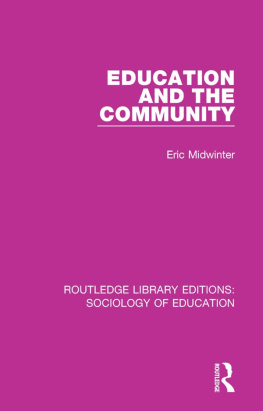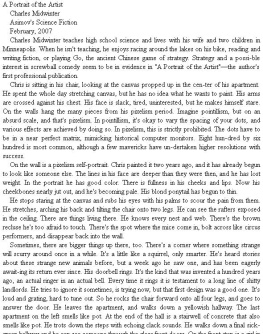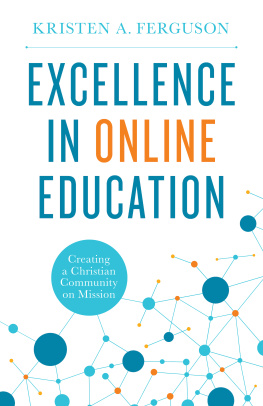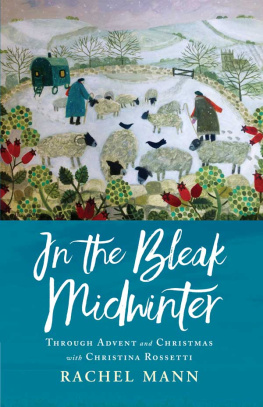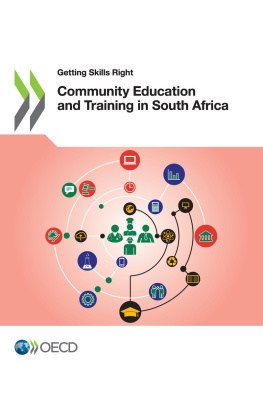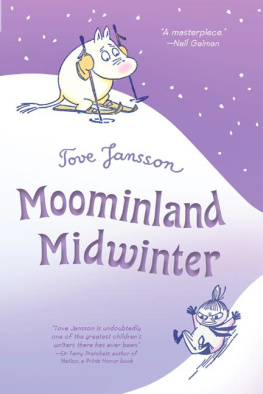Midwinter - Education and the Community
Here you can read online Midwinter - Education and the Community full text of the book (entire story) in english for free. Download pdf and epub, get meaning, cover and reviews about this ebook. year: 2017, publisher: Routledge, genre: Politics. Description of the work, (preface) as well as reviews are available. Best literature library LitArk.com created for fans of good reading and offers a wide selection of genres:
Romance novel
Science fiction
Adventure
Detective
Science
History
Home and family
Prose
Art
Politics
Computer
Non-fiction
Religion
Business
Children
Humor
Choose a favorite category and find really read worthwhile books. Enjoy immersion in the world of imagination, feel the emotions of the characters or learn something new for yourself, make an fascinating discovery.
Education and the Community: summary, description and annotation
We offer to read an annotation, description, summary or preface (depends on what the author of the book "Education and the Community" wrote himself). If you haven't found the necessary information about the book — write in the comments, we will try to find it.
Education and the Community — read online for free the complete book (whole text) full work
Below is the text of the book, divided by pages. System saving the place of the last page read, allows you to conveniently read the book "Education and the Community" online for free, without having to search again every time where you left off. Put a bookmark, and you can go to the page where you finished reading at any time.
Font size:
Interval:
Bookmark:


by Routledge
2 Park Square, Milton Park, Abingdon, Oxon OX14 4RN
711 Third Avenue, New York, NY 10017
A catalogue record for this book is available from the British Library
ISBN: 978-1-315-20949-4 (Set) (ebk)
ISBN: 978-0-415-78880-9 (Volume 37) (hbk)
ISBN: 978-1-315-22317-9 (Volume 37) (ebk)
The publisher has gone to great lengths to ensure the quality of this reprint but points out that some imperfections in the original copies may be apparent.
The publisher has made every effort to trace copyright holders and would welcome correspondence from those they have been unable to trace.
004 370066 7 paperback
To Catharine
An ageing yarn tells of the seven-year-old youngster who, while doing his homework, confronted his father with the poser: Daddy, where did I come from?? Like parents before and since, he reviewed the dilemma. Should he reveal all or stick with the myths? He had read of sex education films in the junior school, almost as if the much-prized discovery method, which had served many in its time, had grown redundant. Contrarily, he had read of commentators who managed to rank sex education and Danish Blue on the same pornographic menu. So he stayed with the legends. Son, he said, the stork brought you in a white sheet. The boy pursued his tack. Where did you come from, daddy? he enquired. The doctor brought me in a Gladstone bag, the father explained. At that moment the childs grandmother entered, and he put the question to her. Daddy tipped her a wink, and, with the shrewd mental agility of grannies throughout history, she caught on immediately. I was found, she announced solemnly, under a gooseberry bush at the bottom of the garden. The boy finished his homework and retired to bed, and the father, alive to the needs of well-informed home-school relations, decided to read his sons little essay. It began: As far as can be safely ascertained by puristic, scientific investigation, there has been no sexual intercourse in our family for at least three generations.
The father had mistaken a general social factor for a specific educational point. He had forgotten that children learn all the time and from all sources, and that what traditionally has been regarded as educational (that is, the academic element of the school) is but a part of this. The social context in which schooling occurs is more important than the schooling aproposand this is the savagery of the ironythe actual schooling itself. Because the totality of a childs experience, from birth and from every quarter, contributes to the manner and quality of his achievement in school, the school itself is often no more than an agent of affirmation.
For the majority of children one can make fairly accurate prognostications, simply from a knowledge of the accident of their birth. One can, for too vast a majority, anticipate, not only how they will fare scholastically, but what sort of height, health, jobs, spouses and, sorrowfully, children they will enjoy or otherwise. It is this prophetic character about our social system which explains what has rightly been called the cycle of deprivation, and, by the same token, it explains the cycle of affluence. It explains what, despite the many exceptions, must be seen as a hereditary characteristic persisting in our society.
The final phase of this coming realisation about the nature of the education process has occurred over the last twenty years. It had long been noted and accepted that what often had been the privilege of education had been bestowed by the already privileged on their offspring. It was believed, naively in the event, that if the opportunity was accorded at all, then privilege would be, in the case of education, vanquished and the ramifications of that conquest would affect the rest of the social commonwealth. This was the ultimate educationists arrogance: despite the fact that education would be unaffected by social factors, it would, nonetheless, affect those social factors itself.
There is no doubt that, in a technical and legal style, the promise of equal opportunity has been reasonably well kept, in so far as no child is barred, socially or economically, from a full negotiation of the educational process. But the consequence of this equalisation of technical and legal opportunity has been disappointing, and the overall irony of schooling has been revealed.
Social composition remains a firmer guide to educational form than type of education. One can estimate, from a knowledge of the social classification of a district, approximately the numbers of its children who will obtain the nap hand of five O-levels, stay on in the sixth form or move on to higher education. Knowing that an area has this or that type of secondary organisation is much less useful a piece of information. Study, for example, the following figures.
Font size:
Interval:
Bookmark:
Similar books «Education and the Community»
Look at similar books to Education and the Community. We have selected literature similar in name and meaning in the hope of providing readers with more options to find new, interesting, not yet read works.
Discussion, reviews of the book Education and the Community and just readers' own opinions. Leave your comments, write what you think about the work, its meaning or the main characters. Specify what exactly you liked and what you didn't like, and why you think so.

